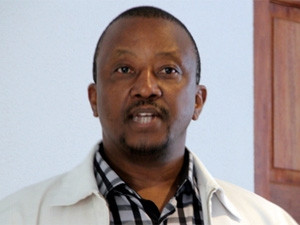
SA's move to digital television - which will free up much-needed spectrum - will take longer than anticipated, because a key contract, for the manufacture of subsidised set-top boxes, has expired.
The South African Communications Forum (SACF) explains, as the tender deadline - which has repeatedly been extended by the Department of Communications (DOC) - has lapsed, government has no choice but to issue it again, a move that will cost industry millions as companies will have to rebid.
The DOC initially issued the tender around the middle of 2012, but it was extended several times, after etv took the department to court over its decision to appoint Sentech to handle the set-top box control system. That issue delayed switch-on by more than a year, but seems to be heading towards resolution as the department has proposed a middle path.
SACF CEO Loren Braithwaite-Kabosha told a media briefing in Midrand this morning the state cannot just resurrect the old tender, as it is likely to face legal challenges, which will delay the process further. The tender's last extension date was to 14 January.
In addition, since the tender was first issued around the middle of 2012, there have been advances in technology and component prices have come down, although the weak rand will mitigate some of these advantages, says Braithwaite-Kabosha.
Costly delay
Braithwaite-Kabosha notes because the process will have to be started again, government will miss its 1 April turn on date, a deadline that was set in the latest Broadcasting Digital Migration policy. As a consequence, the soonest the state can turn on would be around June or July.
In addition, says Braithwaite-Kabosha, it will cost companies millions to bid again.
If the department makes a final determination on the issue of control soon, the new tender can be issued and could be adjudicated within a month, says Braithwaite-Kabosha. The DOC has said it is currently pondering submissions to its solution.
Government's solution, which has yet to be made final, means controls will be used in subsidised boxes, but this is not mandatory for the rest of the market. The High Court ruled the DOC could not mandate a vendor and this was in the hands of broadcasters.
However, Muzi Makhaye, chairman of the SACF's industrial development working group, notes the South African Bureau of Standards has not changed its standard. This means manufacturers have no choice but to include controls, he adds.
SA is moving to digital television using the European DVB-T2 standard along with several of its neighbours. The International Telecommunications Union (ITU) has decreed that analogue broadcast will no longer be protected from the middle of next year.
As a result, countries that have not migrated could be subject to interference from their neighbours. Communications minister Yunus Carrim has said he hopes the country will meet the deadline, but has yet to provide firm switch on dates.
Carrim has also indicated government has not discussed asking the ITU for an extension.
Makhaye hopes the state will meet the deadline, but adds if it misses it, government would have to approach the ITU and explain why the date was overshot.
Underused
Makhaye notes a further delay will push out the benefits of the digital dividend, which is the spectrum that will be freed up when the country moves off analogue. Cellular companies desire frequency in this space to expand broadband services to more rural areas.
The SACF's working group represents six set-top box manufacturers, including Arion Bomema Technology (ABT) - of which Makhaye is CEO - Altech UEC, DiViTech and Seemahale Telecoms, it says.
Makhaye says manufacturers are currently running at around 40% capacity, which is why some have turned to making other products, such as Seemahale's bid to make tablets locally. Some 36 companies responded to the DOC's initial request for proposals.
The tender, which was expected to be divided up between several suppliers, could be worth as much as R3.5 billion, based on the department's previous estimate of decoders costing around R700 each. The final price will depend on the winning bids.
About 11.5 million households in SA will need decoders to keep watching television once the old-fashioned analogue broadcast is turned off. Cabinet had previously set aside R2.45 billion to subsidise as much as 70% of the cost of the box for five million poor TV-owning households.
SA's move to digital TV is expected to create thousands of jobs, act as a catalyst for a flagging electronics sector, and free up spectrum for more broadband to be rolled out.
DOC statement
The DOC said in a statement this afternoon that it would convene a meeting of all the parties that have responded to the amendment to the Broadcast Digital Migration Policy next week.
"We don't want to preempt the outcome of the negotiations. So, we will therefore not comment at this stage.
"Of course, we can't stop parties airing their views in public, but we would prefer that they refrain from doing so and actively participate in the Department's process in order to overcome the current differences.
"We are confident that if we all cooperate, we will find consensual solutions."
Share